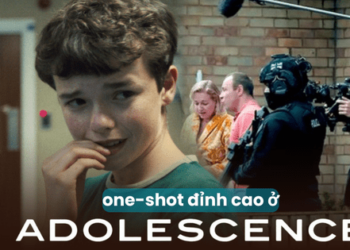The summer of 2016 was truly disappointing for blockbuster films. A series of movies received low-quality ratings, while some even failed to generate enough revenue to cover production costs alongside excessively high advertising expenditures. The amount spent on blockbuster films has risen to hundreds of millions of dollars, but the returns have not been as expected. There are numerous reasons attributed to this issue, such as poor script quality and miscasting of actors. However, the focus remains on the ten primary issues outlined below. Hopefully, Hollywood will take notice and quickly rectify these problems in 2017 to deliver better films to audiences.
1. Critic Reviews No Longer Matter
The turning point came when Batman V Superman: Dawn of Justice and Suicide Squad received extremely low ratings on Rotten Tomatoes. Many viewers expressed their frustrations and criticized the review sites, especially the fans of DC Comics.
“Suicide Squad” received a crushing blow from critics but still managed to turn a profit
The scoring criteria for films and the perspectives of critics differ significantly, but these ratings do not seem to impact box office performance at all. For example, Suicide Squad grossed an impressive $672 million worldwide despite its poor ratings. This simply indicates that the critic rating does not hold much significance when compared to the box office earnings and marketing strategies employed to connect with the audience.
2. The Power of Word of Mouth
The influence of word of mouth has become a crucial factor in determining the success or failure of films. Just a few trailers or promotional posters can generate a buzz that significantly affects audience interest and ratings through social media. This year’s notable examples are Ghostbusters and Gods of Egypt. One film faced backlash for its portrayal of African folklore while predominantly casting white actors, with the only black character being a supporting role.
“Ghostbusters” is a poor representation of the power of word of mouth
In the case of Ghostbusters, regardless of the film’s quality, the gender-swapping elements became a cultural issue, leading audiences to react negatively, particularly among male viewers. Despite Batman V Superman and Suicide Squad generating considerable revenue, they experienced significant declines in box office rankings, dropping by as much as 81% shortly after their debut, indicating that audience perceptions greatly influence a film’s success.
3. Franchise Films Are Not Always Guaranteed Success
The franchise concept became increasingly prevalent since Marvel released the Avengers, leading many studios to scramble to create their own universes. Universal Pictures is developing a monster universe, while Legendary Pictures aims to merge King Kong with Godzilla, alongside a crossover of 21 Jump Street and Men in Black. The most prominent contender outside of Marvel remains Warner Bros/DC with Batman V Superman: Dawn of Justice and Suicide Squad, which clearly fell short of expectations in terms of strong connections between the films.
The rush to create connections in Batman V Superman led to its failure
From Man of Steel to Batman V Superman, the connection was strained, and viewers struggled to understand the separate stories of Batman and Wonder Woman before they could truly appreciate the characters. The only reason why Marvel’s franchise films have succeeded is that they have developed clear story arcs and connected significant events throughout the series. The most evident example is Iron Man, which kicked off the MCU and led to the Avengers four years later, and the transition to Avengers: Age of Ultron three years later.
4. Poor Script Quality and Lack of Creativity
In 2016 alone, a plethora of remake films were released. Some succeeded, while others fell short, such as Ben-Hur and Ghostbusters. The sequels of these films also struggled to escape from being mediocre. Ice Age: Collision Course, Kungfu Panda 3, and Star Trek: Beyond all had disappointing box office performances and had to rely heavily on international revenues. This trend has long been prevalent and remains essential in the film industry, yet the production houses seem unaware of the pitfalls of remaking or rehashing films without innovative ideas.
Ice Age: Collision Course – A film that barely meets expectations
To earn money, Hollywood seems to be relying on established franchises. If not, they must create something entirely new to compete. This year, many fresh blockbuster films emerged, aiming to pave the way for new series like Warcraft and The Legend of Tarzan, yet the final outcomes were disappointing.




























